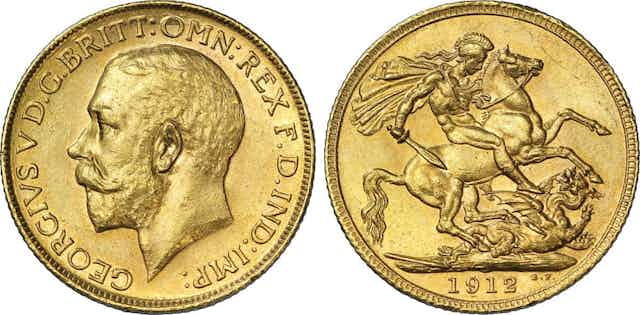The attorney general, Jeremy Wright, is asking the high court in London to unfreeze a 90-year-old patriotic donation intended to pay off Britain’s national debt after World War I. An anonymous donation of just under £500,000, made in 1927, has been held in trust as the “National Fund” – and, invested until today, it is worth around £400m.
The gift was given on the condition that it would be held and allowed to accumulate interest until it was sufficient to pay off the national debt, either alone or with the additional support of other funds. The government now wants to use the money itself – although some argue it should go to charities. Today, the £400m would pay only 0.00024% of the current £1.7 trillion national debt.
The original donation comprised £338,909 in cash and £160,969 in securities, with Baring Brothers as the original trustees. There have been subsequent additional donations to this National Fund to the sum of £544,152.
The original donation was made to the government a number of years after 1919 when Stanley Baldwin, the financial secretary to the Treasury, who was later to become prime minister, asked for rich patrons to assist in paying off the country’s debt accumulated during the war.
Follow my lead
Baldwin merely asked for the countries’ wealthy to follow his own example. He had donated a fifth of his family’s wealth to the same cause – a total of £120,000 out of his estimated fortune of £580,000. He made his own donation anonymously, signing a letter to The Times on June 24, 1919 explaining his actions, with the moniker “FST” reflecting his political position.

Baldwin apparently felt burdened by his personal fortune and described how he felt like a “runner who had stripped off his sweater for a race” after his donation. When he later became prime minister, this action became public knowledge against his will.
Baldwin, born into a family of wealthy and well-connected industrialists, helped his father establish Baldwins Ltd, one of Britain’s largest iron and steel firms. The firm became Richard Thomas & Baldwins in 1948, later part of the nationalised British Steel Corporation in 1967 and now Corus, owned by the Indian conglomerate Tata.
Baldwin was a successful businessman with a quarter of a century of experience in the family concern before entering parliament. He saw himself as a “practical businessman” rather than as simply a politician. Like so many of his contemporaries, he was deeply moved by the horror and sacrifice of the Great War. It heightened his religiosity which was informed by his nonconformist belief in divine providence.
His Methodist upbringing had also emphasised practical good works and service. Distressed by the healthy profits the family company had made during the war, it was his sense of moral obligation that made him give £120,000 to the Treasury to cancel part of the war loan.
Mounting debts

The issue of war loans as part of the national debt dominated political concerns in the 1920s. National debt – sometimes called “government debt” – is the money owed by the central government to lenders whether they be overseas or domestic, and appears when the government spends more than it receives in income from taxes and other sources. This debt first appeared in the 1690s after war with France during the reign of William III and Mary II, and led to the establishment of the Bank of England in 1694.
In the 18th century, as Britain’s trading empire expanded, often at the expense of the French via numerous wars, national debt grew to pay for the costly defence expenditure and led to a wide range of tax raising measures to manage it. In 1914 the national debt stood at £620m; in 1920 it was £8 billion, with over £1 billion owed to overseas creditors, mostly the US. This put Britain’s balance of payments under pressure. In his 1919 letter to The Times, Baldwin had written:
It is so easy to live on borrowed money; so difficult to realise you are doing so … How can a nation be made to understand the gravity of the financial situation; that love of country is better than love of money? This can only be done by example and the wealthy classes have today an opportunity of service which can never recur.
Alas, too few felt the same and the voluntary levy of the rich Baldwin envisaged never gained popularity, except for this one generous donation in 1927 – which remains anonymous to this day. It is hard to believe that any of today’s politicians would be prepared to surrender a fifth of their personal fortune for a national disaster as Baldwin did, or that they would like Baldwin or the 1927 donor, be prepared to do so anonymously.

